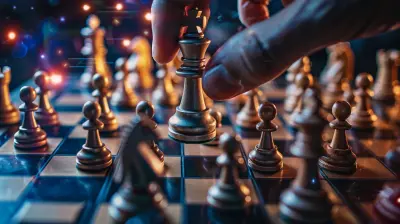The Psychology Behind Winning at Strategy Games
24 September 2025
Ever wondered what separates consistent winners from the rest in strategy games? Whether you're playing chess, a real-time strategy video game, or a complex board game like Catan, there’s more to success than just knowing the rules. Winning at strategy games isn’t just about being smart — it’s about understanding psychology. Yup, your brain is your secret weapon! Let's dive headfirst into how your mind plays a starring role in crushing your opponents and mastering the art of strategy.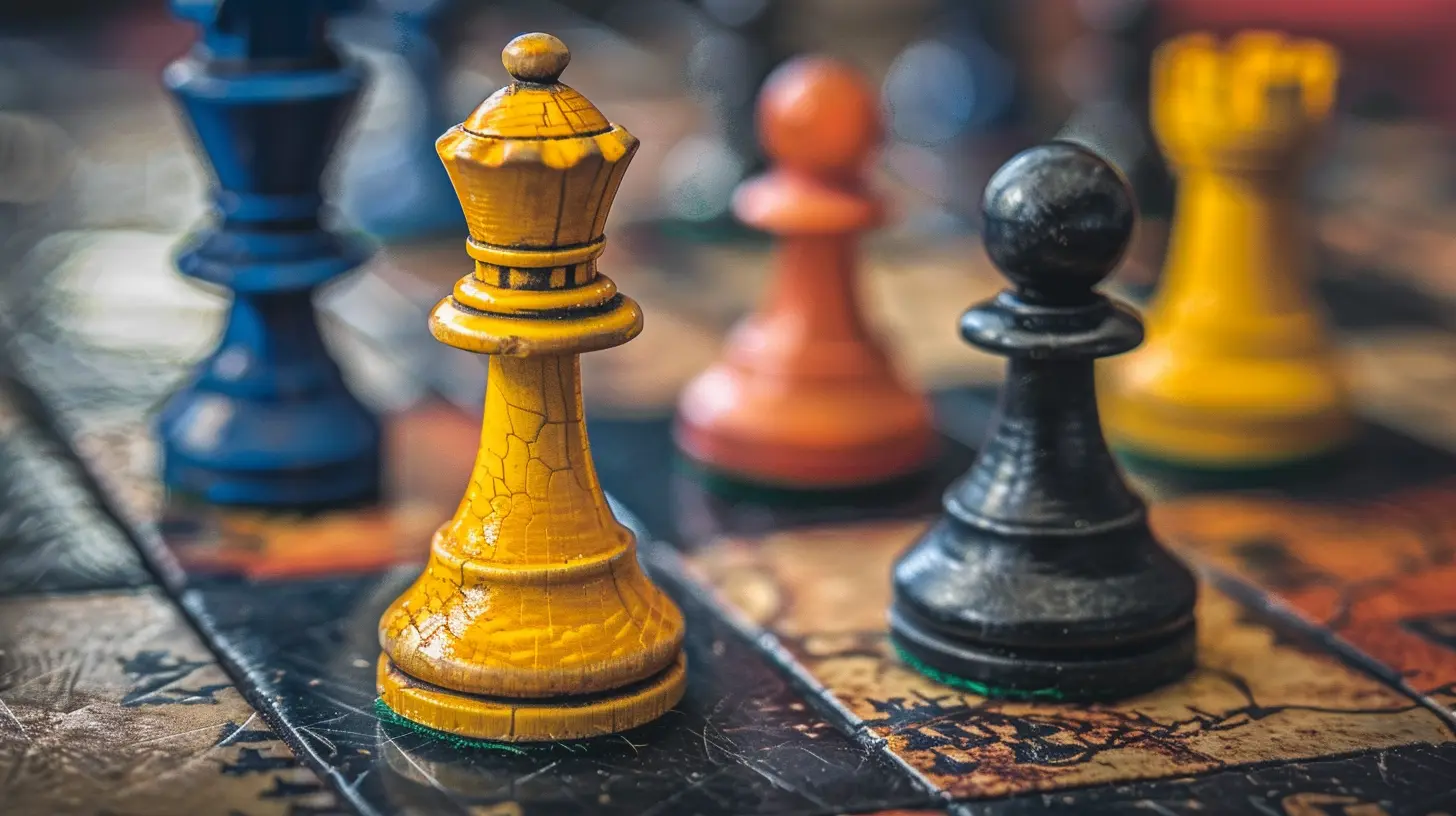
The Power of Mindset: Starting With the Right Attitude
Before you even touch the game pieces, your mindset can make or break your performance. Confidence is key, but overconfidence? That’ll trip you up faster than rolling a one on a dice. If you believe you’re going to lose, you’ll subconsciously make decisions that sabotage your chances. It’s the classic "self-fulfilling prophecy."Winning is partly about your belief systems. Ever heard of a "growth mindset"? That’s when you approach challenges as opportunities to learn rather than threats to your ego. In strategy games, this translates to embracing losses as a stepping stone to becoming unbeatable. You’re not losing; you’re downloading data for your next move.
Tip:
Channel your inner underdog. Treat every game as a puzzle waiting to be solved. Even if you lose, you’re sharpening your skills for the future. And hey, losing gracefully makes you the kind of player everyone wants to come back to!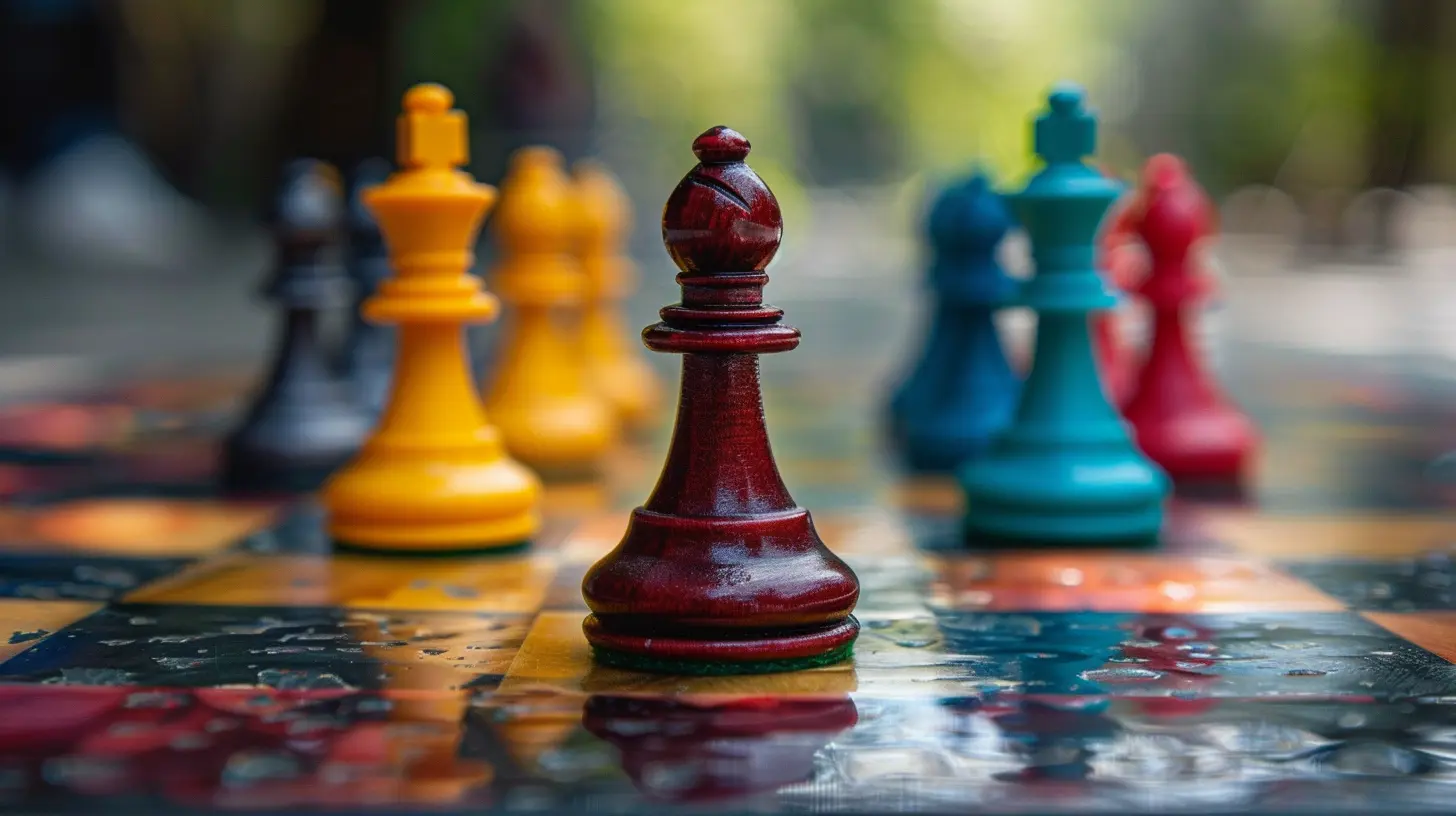
Emotional Control: Stay Cool Under Pressure
Let’s be real — strategy games can get intense. Your heart is pounding, your palms are sweaty (thanks, adrenaline), and the clock is ticking. But the minute you let your emotions take over, your decision-making flies out the window faster than a pawn in a reckless chess opening.Keeping your cool is crucial. Studies show that strong emotions like frustration or excitement can cloud your judgment. That’s why seasoned players stay calm, collected, and composed, even when their plans start unraveling. It’s not about repressing your feelings — it’s about managing them.
Quick Hack:
Take a deep breath before every major move. A quick pause resets your brain and helps you evaluate your options with a fresh perspective. Kind of like hitting the "refresh" button on a laggy computer, right?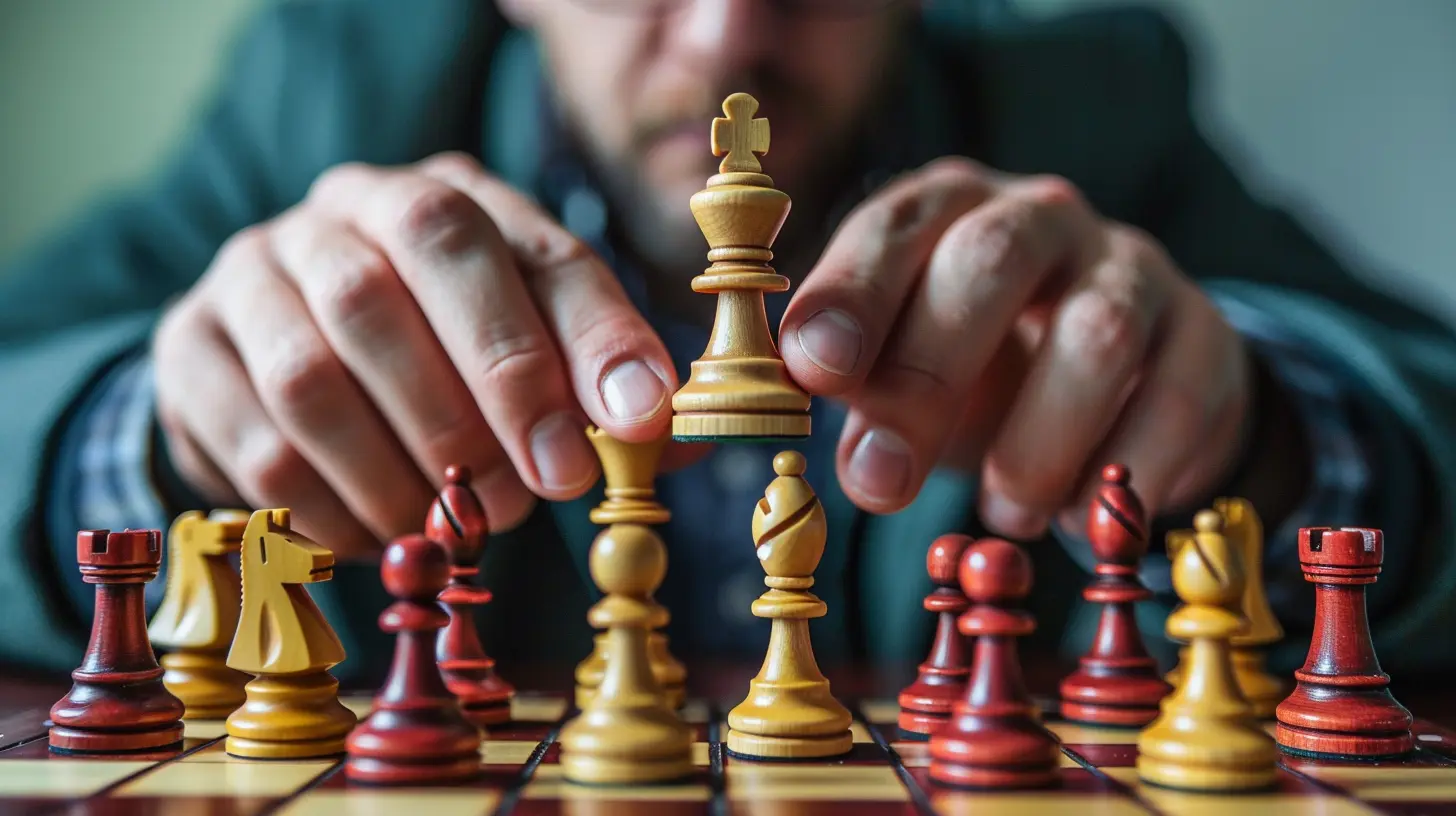
Pattern Recognition: Your Brain’s Built-in Superpower
Guess what? Your brain LOVES patterns. It’s practically a pattern-detecting machine. In strategy games, recognizing patterns separates the rookies from the pros. Whether it's spotting the predictable moves of an opponent in chess or identifying resource collection trends in a strategy video game, pattern recognition is your secret weapon.Think about it like this: after playing a game enough times, your brain starts connecting the dots. You’re not thinking about every move anymore; instead, you instinctively know what works and what doesn’t. That’s why experienced players can think several moves ahead — they’ve internalized the patterns.
Pro Tip:
Repetition is key. The more you play, the faster your brain can recognize and respond to patterns. Play games with a variety of opponents to expose yourself to different playing styles, and you'll level up your pattern-spotting skills in no time.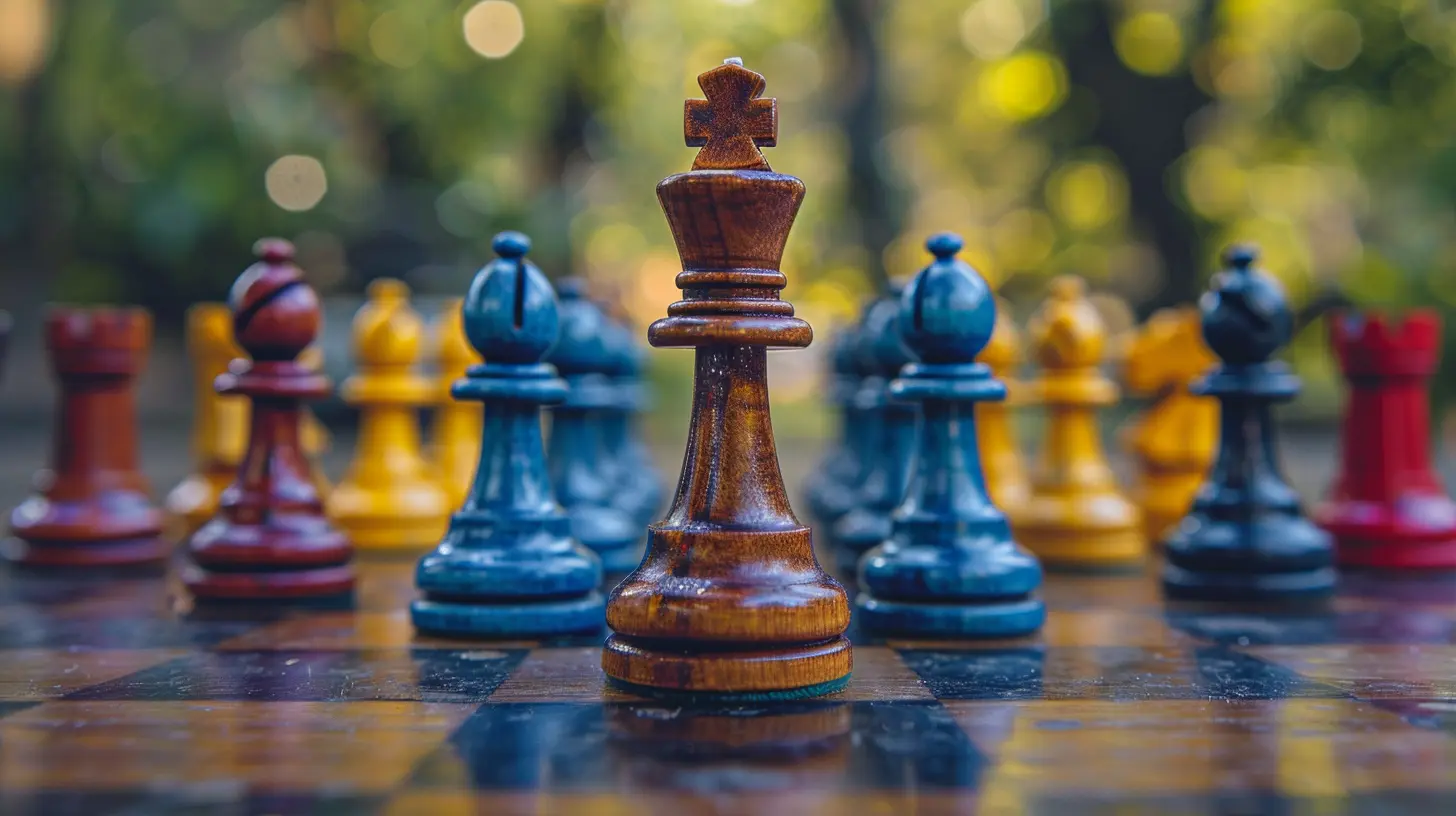
The Art of Bluffing: Psychology Meets Strategy
Bluffing isn’t just for poker. It’s a core mechanic in many strategy games, and mastering the art of deception can give you the upper hand. But let’s be clear: bluffing is not about lying outright. It’s about creating uncertainty in your opponent’s mind. Keep them second-guessing. Make them wonder, “Are they really THAT confident, or is it just a front?”Not all players are natural bluffers, and that’s okay. The key is knowing when to sprinkle a little psychological misdirection into your gameplay. For example, in a board game, you might pretend like you’re focused on one strategy while secretly working on another. It’s like playing a game of chess where your opponent is trying to read your mind — only you’re two steps ahead.
Reminder:
Bluff sparingly. If you overdo it, your opponents will catch on faster than you can say “checkmate.” Balance is everything.Risk Management: Knowing When to Go Big or Play It Safe
If strategy games are a battlefield, risk is your weapon. But here’s the catch: unmanaged risk is like playing with fire. Sometimes, going all-in is the way to win. Other times, a measured, cautious approach will save the day.What separates winners is their ability to assess risks on the fly. Being too timid can make you predictable, while being recklessly bold can backfire spectacularly. It’s all about weighing the pros and cons of a move — and sometimes, trusting your gut (it’s smarter than you think).
Golden Rule:
Ask yourself, “What’s the worst that could happen?” If the worst-case scenario is manageable, take the risk. If not, it might be time to hold back and recalibrate.Adapting to Change: Flexibility is Crucial
Ever had a perfect strategy crumble in the blink of an eye because your opponent did something completely unexpected? Yeah, we’ve all been there. The most successful players are the ones who can adapt to sudden changes, pivot their plans, and make the best out of a bad situation.Adaptability is like water — it finds its way around obstacles instead of smashing into them head-on. Strategy games are rarely linear. Opponents will throw curveballs, luck will meddle, and your perfectly laid plans will (sometimes) go up in smoke. How you respond determines whether you sink or swim.
Fun Analogy:
Think of strategy games like playing jazz. Sure, you’ve got the sheet music (your plan), but sometimes the song takes a turn, and you’ve gotta improvise. That’s where the magic happens.Decision Fatigue: Why Overthinking is Your Enemy
Let’s talk about overthinking for a second. Ever stared at a chessboard for so long that every move started to feel wrong? That’s decision fatigue creeping in. It happens when your brain gets overwhelmed by too many choices, causing you to freeze up or make mistakes.The antidote? Simplify your decision-making process. You don’t have to analyze every single move to death. Sometimes, the best choice is just the simplest one. Trust your instincts and let your brain do its thing.
Pro-Level Insight:
Set a mental time limit for each decision. Think of it like a chess clock. This prevents you from falling down the rabbit hole of "what-ifs."The Social Factor: Reading Opponents Like a Book
Strategy games aren’t just about you; they’re about figuring out the people you’re playing against. It’s like a high-stakes game of poker where every move tells you something about your opponent’s mindset.Are they aggressive? Defensive? Do they take risks or play it safe? Reading these cues can give you an edge. Pay attention to body language, patterns, and even the tone of their voice during gameplay. The better you are at predicting their moves, the easier it is to counter them.
Quick Exercise:
The next time you play, make it your mission to “profile” your opponent. By the end of the game, you should know enough about their style to predict their strategy in a rematch.Practice Makes Perfect (But So Does Studying)
Practice is the ultimate teacher when it comes to strategy games. But here’s the thing: practice alone isn’t enough. To truly excel, you need to study the game itself — its mechanics, strategies, and even its history.Watch tutorials, read strategy guides, and analyze your past games. Look at what worked and what didn’t. Each game is like a mini classroom, teaching you valuable lessons if you’re willing to pay attention.
Final Thought:
Think of yourself as a scientist experimenting with different strategies. The more data you gather, the stronger your gameplay will become.Wrapping It Up: It’s All in Your Head
At its core, winning at strategy games comes down to psychology. It’s about understanding yourself, outsmarting your opponents, and constantly striving to improve. Master the art of mindset, emotional control, adaptability, and risk management, and you’ll be unstoppable.But most importantly? Have FUN. Strategy games are as much about enjoying the journey as they are about claiming victory. So, whether you win or lose, just remember: every move you make is one step closer to mastering the game.
all images in this post were generated using AI tools
Category:
Strategy GamesAuthor:

Emery Larsen
Discussion
rate this article
2 comments
Zarev Barlow
Winning at strategy games is like trying to outsmart a cat: you think you’ve got it figured out until it knocks over your carefully planned setup. Turns out, the real strategy is having snacks on hand while plotting your next moves—priorities, right?
February 8, 2026 at 4:39 AM
Sadie Webster
Great insights on the psychological factors influencing success in strategy games! Understanding decision-making and risk assessment truly enhances gameplay. Looking forward to applying these tips in my next match!
September 25, 2025 at 2:38 PM

Emery Larsen
Thank you! I'm glad you found the insights helpful. Best of luck in your next match!
